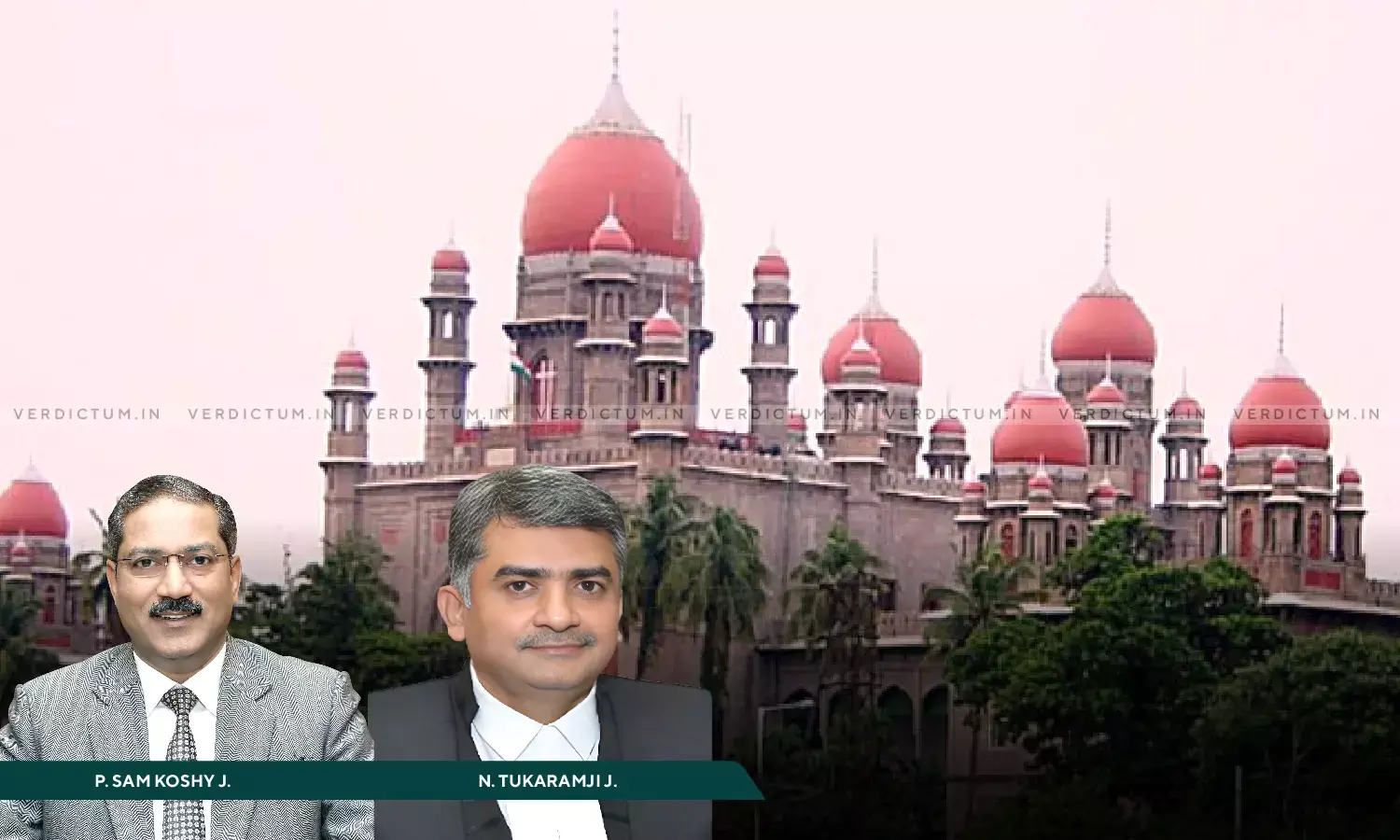Lok Adalat Lacks Jurisdiction In Exercising Adjudicatory Powers; Can Only Ensure Conciliation & Facilitate Settlement: Telangana HC
The Telangana High Court clarified that Lok Adalat lacks jurisdiction in exercising adjudicatory powers and its role is solely to ensure conciliation between the parties and facilitate settlement / compromise between them.
The High Court set aside the order of the Mandal Legal Services Committee / Junior Civil Judge at Bhainsa (MLSC) as the order was more in the nature of execution petition getting decided without otherwise resorting to the execution proceedings.
The Division Bench of Justice P.Sam Koshy & Justice N.Tukaramji asserted, “The Mandal Legal Services Committee or for that matter the Lok Adalats do not have the power to accept petitions where the relief sought for is implementation of the judgment and decree.”
Advocate C.Anvesh Kiran represented the Petitioner while Standing Counsel Shashi Kiran Pusluri represented the Respondent.
As per the facts of the case, the respondent No.4 approached the respondent No.2 / Tahsilda seeking a direction for ensuring compliance of a decree passed in the year 2023 by the Civil Court.The decree was obtained by her in a Suit for partition and it stood decreed in her favour holding that she was entitled for 1/3rd share in the Suit schedule property. Upon the said P.L.C. being filed by respondent No.4, the impugned order was passed. The MLSC allowed the pre-litigation case and directed the respondent No.2 to mutate the name of respondent No.4 as also names of other defendants in the revenue records. The petitioner had filed a Writ Petition under Article 226 of the Constitution challenging the order of the Mandal Legal Services Committee / Junior Civil Judge at Bhainsa (MLSC) and also the consequential order passed by the District Collector.
It was the case of the petitioners that the impugned order was one which was in excess of jurisdiction which is otherwise conferred upon the MLSC / Lok Adalat under the Legal Services Authorities Act, 1987, while dealing with a pre-litigation case. It was further contended that even otherwise the impugned order is not sustainable for the reason that an order passed by a Lok Adalat is only to be passed by way of an agreement, settlement and compromise but in the present matter this wasn’t the case.
The Standing Counsel for the Respondent also submitted that all that the Lok Adalat can do is to pass a compromise award and under no circumstances can the Lok Adalat adjudicate upon a matter on merits.
Referring to the judgment of the Supreme Court in State of Punjab and Another vs. Jalour Singh and Others (2008) 2 Supreme Court Cases 660, the Bench observed, “From the aforesaid view of the Hon’ble Supreme Court it is evidently clear that Lok Adalat otherwise lacks jurisdiction in exercising adjudicatory powers. Lok Adalat’s role is solely to ensure conciliation between the parties and facilitate settlement / compromise between them. Lok Adalat have only power to pass compromise award. If there is no settlement or compromise, no award can be passed by the Lok Adalat and the case thereafter would go back to the concerned Court for proper adjudication.”
“We have no hesitation in reaching to the conclusion that the Mandal Legal Services Committee has extended its jurisdiction while entertaining and adjudicating the P.L.C”, the Bench further added.
The Bench also referred to the statutory provisions contained in Legal Services Authorities Act, 1987 and National Legal Services Authority (Lok Adalat) Regulations, 2009 and clarified that in the instant case the impugned order that was been passed by the Mandal Legal Services Committee was in excess of jurisdiction and also that which was not conferred upon the said Lok Adalat under the Legal Services Authorities Act, 1987.
“The order under challenge is not a compromise or a settlement award or order. Rather, the order is one which appears to be a direction petition which stands allowed directing respondent No.2 for ensuring the mutation proceedings to be concluded within a stipulated period of time in favour of respondent No.4. In other words, the order under challenge in the writ petition is more in the nature of execution petition getting decided without otherwise resorting to the execution proceedings”, the Bench held.
Thus, allowing the petition, the Bench quashed the Order of the Mandal Legal Services Committee.
Cause Title: Takur Laxmi and Others vs The Mandal legal Services Committee and Others. [Case No.: WRIT PETITION No.12116 of 2024]
Appearance:
Petitioner: Advocates C.Anvesh Kiran & Manideep Madhavarapu
Respondent: Standing Counsel Shashi Kiran Pusluri, Special Government Pleader for Revenue




